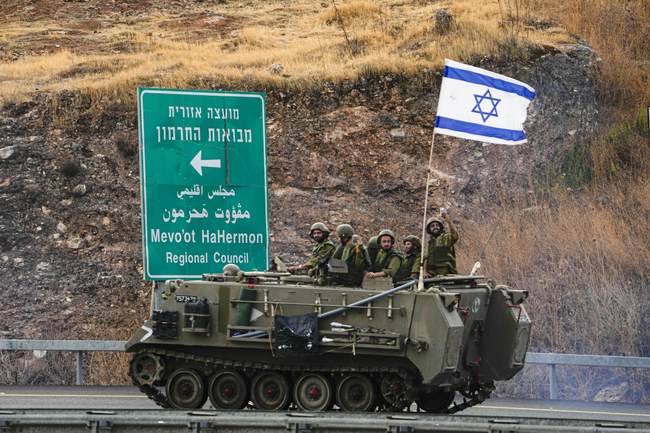Ask not for whom the pager tolls. It tolls for thee, Hezbollah.
Yesterday, Israeli defense minister Yoav Gallant warned the US that time had all but run out on a diplomatic solution to the conflict with Hezbollah. Today, the Israelis alerted dozens hundreds of Hezbollah members in Beirut, too. The Israelis had apparently rigged their pagers with explosives, and set them off earlier this morning:
Dozens of members of the Lebanese terrorist group Hezbollah were seriously wounded on Tuesday in Lebanon’s south and the southern suburbs of Beirut when the pagers they use to communicate exploded, security sources told Reuters.
A Reuters journalist saw 10 Hezbollah members bleeding from wounds in the southern suburb of Beirut known as Dahiyeh.
“Dozens” was the initial report, but the full scope of this operation is already looking larger. Now it’s being reported as “hundreds,” and one report puts the number at 1200. At least one video of the explosions has emerged too:
BREAKING via Reuters
“Hundreds of members of the Lebanese armed group Hezbollah, including fighters and medics, were seriously wounded on Tuesday when the pagers they use to communicate exploded.”
Here is one video of one of the pager explosions. pic.twitter.com/GIv39T26Ki
— Yashar Ali 🐘 (@yashar) September 17, 2024
That’s ingenious. It’s enough to wound and potentially kill a specific enemy target while doing no collateral damage. One has to wonder how the Israelis pulled this off. You can bet that Hezbollah will spend a lot of time trying to find that out … at least those who didn’t get paged this morning.
One thing is for sure — Hezbollah not only lost many key personnel for a while (even if they all survive), but they also now have to rethink their internal communications. The use of older-tech pagers may have been an attempt to get around Israeli surveillance and protect communications with higher-ranking terrorists. Two months ago, Reuters reported that Hezbollah had banned cell phones in the battlefield for that very purpose:
Coded messages. Landline phones. Pagers. Following the killing of senior commanders in targeted Israeli airstrikes, the Iran-backed Lebanese militant group, Hezbollah, has been using some low-tech strategies to try to evade its foe’s sophisticated surveillance technology, informed sources told Reuters.
It has also been using its own tech – drones – to study and attack Israel’s intelligence gathering capabilities in what Hezbollah’s leader, Sayyed Hassan Nasrallah, has described as a strategy of “blinding” Israel. …
Hezbollah has learned from its losses and adapted its tactics in response, six sources familiar with the group’s operations told Reuters, speaking on condition of anonymity to discuss sensitive security matters.
Cell phones, which can be used to track a user’s location, have been banned from the battlefield in favour of more old-fashioned communication means, including pagers and couriers who deliver verbal messages in person, two of the sources said.
Now that entire infrastructure has been destroyed. Or does anyone think that Hezbollah commanders will power up their existing devices after this?
And that may be an opening strategy for a full-scale offensive from Israel. As I mentioned above, Gallant warned the US yesterday that time had run out. The only way to restore northern Israel, Gallant told Biden adviser Amos Hochstein, was through military action to destroy the threat of Hezbollah and its rockets.
Not coincidentally, the Israeli government announced that the restoration of population centers in northern Israel was now a top goal in the war triggered by Hamas on October 7:
The security cabinet has updated its official goals for the ongoing war with Hamas in Gaza to include the objective of allowing residents of the north to return safely to their homes after being displaced by attacks by the Lebanese terror group Hezbollah, the Prime Minister’s Office announced Tuesday.
“The safe return of the residents of the north to their homes” has now been added as a fourth objective to the war, the PMO said in a statement.
“Israel will continue to act to achieve this goal,” the statement said following a late-night meeting of the security cabinet in Tel Aviv.
The timing of this operation makes it look like that moment has arrived. Israel would not have triggered this attack unless it wanted to blind and disable Hezbollah in the immediate opening sequences of a full-scale war. And the timing is also key in the broader strategic sense, Yonah Jeremy Bob points out:
Sources have told the Post that if more than 4-6 weeks pass without an operation, it may be impossible – or much harder – to carry out such an operation until Spring 2025.
This would mean condemning the northern residents to another 6 months outside of their homes, something becoming increasingly untenable domestically in Israel.
Pressed that the IDF managed a successful invasion of Khan Yunis and defeated Hamas in Shejaia in northern Gaza in the middle of this past winter, sources said that the winter in mountainous Lebanon is far more fierce and difficult to manage than in the Gazan deserts.
The success of the pre-emptive strike last month has bolstered Netanyahu’s confidence in the military to succeed in a war against Hezbollah. Today’s pager operation probably gives the IDF their best opening to commence offensive operations — or to force Hezbollah into shutting down theirs. Either way, the moment is upon them both.
Read the full article here




![Unpacking the Trump Would-Be Assassin’s Past [WATCH] Unpacking the Trump Would-Be Assassin’s Past [WATCH]](https://www.lifezette.com/wp-content/uploads/2024/09/2024.09.17-01.46-lifezette-66e9883b3db8c.jpg)



![Megyn Kelly Unleashes on ‘Fake’ Kamala Harris and Everything She Pretended To Be [WATCH] Megyn Kelly Unleashes on ‘Fake’ Kamala Harris and Everything She Pretended To Be [WATCH]](https://www.rvmnews.com/wp-content/uploads/2025/01/2025.01.19-10.37-rvmnews-678d7ec3dde3c.jpg)

